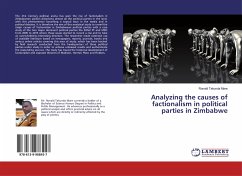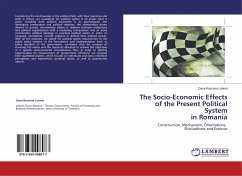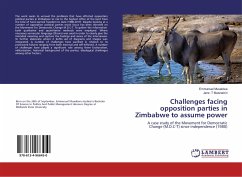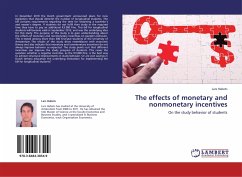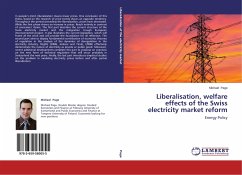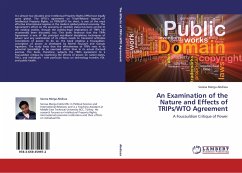
A Critical Analysis of the Effects of Factionalism to Political Development in Zimbabwe
The Case Study of ZANU PF
Versandkostenfrei!
Versandfertig in 6-10 Tagen
27,99 €
inkl. MwSt.

PAYBACK Punkte
14 °P sammeln!
Factionalism in ZANU PF has brought about several challenges to political development in Zimbabwe, of course MDC has had its own fair share of factionalism but the impacts were never felt like the current factionalism in ZANU PF. The rampant factionalism in ZANU PF ballooned since the December 2014 conference where several ZANU PF members faced the ZANU-PF axe including the vice president at that time Joyce Mujuru, since then poor Zimbabweans still continue to feel the heat of factionalism within the ruling party. The key indicators of political development in Zimbabwe that were discussed were...
Factionalism in ZANU PF has brought about several challenges to political development in Zimbabwe, of course MDC has had its own fair share of factionalism but the impacts were never felt like the current factionalism in ZANU PF. The rampant factionalism in ZANU PF ballooned since the December 2014 conference where several ZANU PF members faced the ZANU-PF axe including the vice president at that time Joyce Mujuru, since then poor Zimbabweans still continue to feel the heat of factionalism within the ruling party. The key indicators of political development in Zimbabwe that were discussed were democracy, good provision of social services and the decrease in illiterate rate. This factionalism within the ruling party is enrooted in succession issues, affiliate organization intervention, divisive slogans, differing party policies and new ideologies, greediness and selfishness and policy inconsistency amongst a few. Moreover, the current ZANU-PF factionalism can be justified as democratic contestation of power, hence the phenomena of the multi-party system owes its credit to the democratization principles in Zimbabwe, although factionalism within the ruling party is uncalled for.



